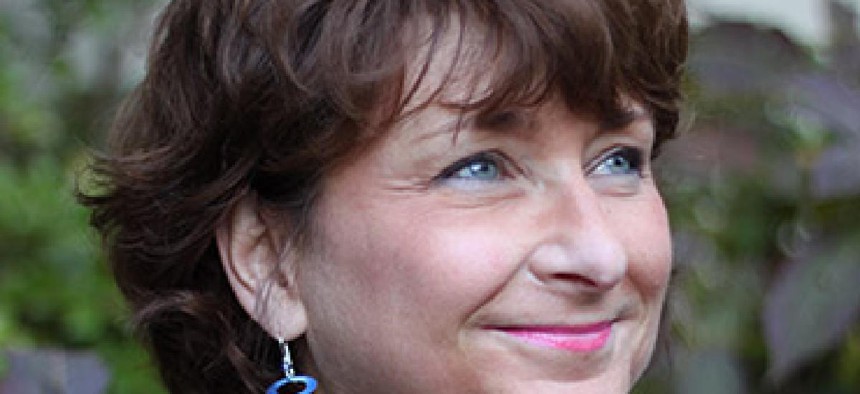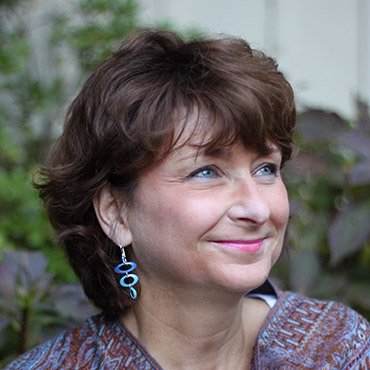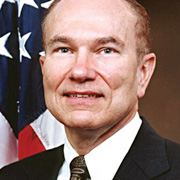Coaching and training in a time of lean budgets

Now more than ever, it is vital for federal managers to invest in their own professional development.

Kim Hancher found advice from an executive coach to be valuable in helping her staff through a recent realignment at the EEOC.
In preparing for a recent staff realignment, Kimberly Hancher, CIO at the Equal Employment Opportunity Commission, consulted her executive coach for some just-in-time training.
"She gave me a quick tutorial on how people deal with change and the best ways to communicate the change," Hancher told FCW.
As a result, when she announced the realignment to her employees, she made sure to immediately address what the new structure meant for each person and to present clear and honest reasons for the change. She also established office hours one afternoon a week so employees would feel free to stop by and ask questions or share their concerns.
Her executive coach's suggestions were invaluable for smoothing the transition. "I wouldn't have thought of these kinds of things," Hancher said.
As you move up the chain of command, you will increasingly find that the skills and behaviors that propelled you to your current level no longer suffice to handle the new challenges you confront. Leadership training and executive coaching can fill the gap by helping you develop new skills, competencies and techniques, and by providing feedback and insights into handling difficult situations.
In these tight times, when many agencies are slashing training budgets and giving closer scrutiny to education and travel proposals, it is more important than ever for federal leaders to seize control of career development and look for opportunities to develop the flexibility and creativity needed for mission success in an uncertain environment.
"From an internal federal government employee's perspective, it's easy to say it's very hard," said Van Hitch, a senior adviser at Deloitte Consulting and former CIO at the Justice Department. "They really do need to take charge of their career and look for opportunities."
The career development pyramid
Think of professional development as a pyramid: Early in your career, you participate in broad training with large groups of people, and as you rise through the ranks, you need more targeted and strategic coaching, said Stewart Liff, a consultant, teacher and author of numerous books, including "Managing Government Employees."
"As you move up the pyramid, it's more systems-driven, more communication, how…you manage people, build relationships and forge alliances," Liff said. "Executive coaching is more for people at the higher end of the pyramid."
Executive coaching not only teaches competencies but also offers the opportunity to meet your counterparts in other divisions and agencies, which helps you develop a broader perspective and a stronger professional network. Executive coaches are especially appropriate when you have a specific challenge to overcome, such as a new role or a complex undertaking to manage.
"From a leadership course you're going to get some very good tools and approaches and case studies, but if you have something you really want to work on or a barrier you have to overcome...you really need to look to a coach," said Susan Grunin, CEO of Think Strategic Consulting, an executive coaching and leadership development firm.
If you're somewhere in the middle of the pyramid, start by taking advantage of the training opportunities at your own agency, where leadership development will be taught in the context of the agency's mission. Your supervisor or human resources manager can tell you what is available.

Van Hitch: Federal employees need to take charge of their own careers.
Early in his career at the Food and Drug Administration, Kwame Ulmer participated in the agency's leadership development program, which included temporary assignments in leadership roles. "That was really a positive experience because it got me thinking about the larger organization...and gave me practical experience around leadership and management," he said. He is now an acting division director at FDA.
Next, there are opportunities to train at other agencies or even with your private-sector peers through the Office of Personnel Management's Federal Executive Institute or ACT-IAC, which offers programs that combine government and private-sector participants at the same level of experience. And when you are ready to apply to the Senior Executive Service, candidate development programs sanctioned by OPM provide a stamp of approval.
"These programs are selective," Hitch said. "You not only have to be aggressive in a positive way in terms of looking out for your own career, you also have to be a good performer. You should apply to a number of these programs."
Training: An opportunity to fill the gaps
Leadership training will often include a 360-degree assessment in which you get feedback on your performance from superiors, peers and subordinates. "It's designed to tell you graciously but still truthfully about how you're perceived," said Tim Persons, chief scientist at the Government Accountability Office.
One of the biggest challenges in becoming a leader is shifting your attitude from competing with colleagues to inspiring and motivating the people on your staff. That's the primary insight Persons took away from his leadership training.
"Your job is not to compete with others so you win but to empower others so that they win," he said. "You need to create the environment for success. To do that requires a lot of complex and holistic thinking."
When moving into the senior executive ranks, you should evaluate where you are and where you need to be in the three dimensions critical for high-level success: your time management, relationships and talents, said David Dye, a director in Deloitte Consulting's Federal Human Capital Practice.
In the process, you need to be honest with yourself about your weaknesses and strengths. Review your performance evaluations and ask mentors for an assessment of where you could most benefit from training, Liff said. You can read up on relevant topics, take online courses independently (often for free) or get valuable help by conducting informational interviews with leaders you want to emulate, said Steve Ressler, founder of online networking community GovLoop, which offers two free training sessions a month.
Technologists typically need more training in communications, collaboration, management and executive development because their background and education are often technically focused, Hitch said. Essential executive competencies include motivating subordinates, fostering teamwork, making decisions, building consensus, evaluating performance and solving problems.
"No one gets Ph.D.s in leadership," Persons said. "You may know Unix better, but that doesn't mean you know how to project manage."
Furthermore, when you train with a group, you gain a powerful network to help you and your agency, and you have an opportunity to participate in cross-agency projects that might be more complex than anything you've managed previously.
"Networking sounds bad, but there's nothing wrong with knowing quality people you can go to for help and advice," said Ressler, who participated in ACT-IAC's Voyagers Program when he was an IT auditor at the Department of Homeland Security. "I met 20 awesome, smart people who were passionate about doing cool things in public service."
Sometimes the results of training can be unexpected. Hancher was surprised that the Federal Executive Institute focused so strongly on work/life balance and community service.
"In the SES, you've got a lot of pressure on you," she said. "You really have to pay attention to your whole you and set the model of balancing work and life and physical fitness and being a well-rounded person. As a public servant and a leader in government, you have to set that model for your staff."
Coaching: Getting out of your comfort zone
As you go higher up the pyramid, you will likely find it helpful to work with an executive coach. Experts say you should go into the experience with an open mind and a willingness to hear hard truths.
"I knew it on an intellectual level that I was going to have to stretch, but when you actually find yourself with a coach who puts up that mirror, that was a surprise," said Ulmer, who interviewed several coaches before finding the right fit. "It's uncomfortable, but that's how you know you're getting your money's worth."
It's important to understand your purpose or goal when you go into coaching, which should be targeted and strategic, Grunin said. Ulmer agreed, saying, "A good coach is with you for a season. It's not a multiyear engagement."
In his first line-management position, his coach helped him figure out how to talk to a specific individual, when to push and when to pull back, and how to improve relationships for the long term.
After all, to be a powerful and effective leader, you need to step out of your comfort zone. The first step might be seeking training and coaching opportunities during tight budget times.
"You own your own career," Grunin said. "Don't expect because you work for the government that you should be satisfied with what you know and what you can do and your skills. You need to develop yourself."
NEXT STORY: The key to better IT portfolio management


